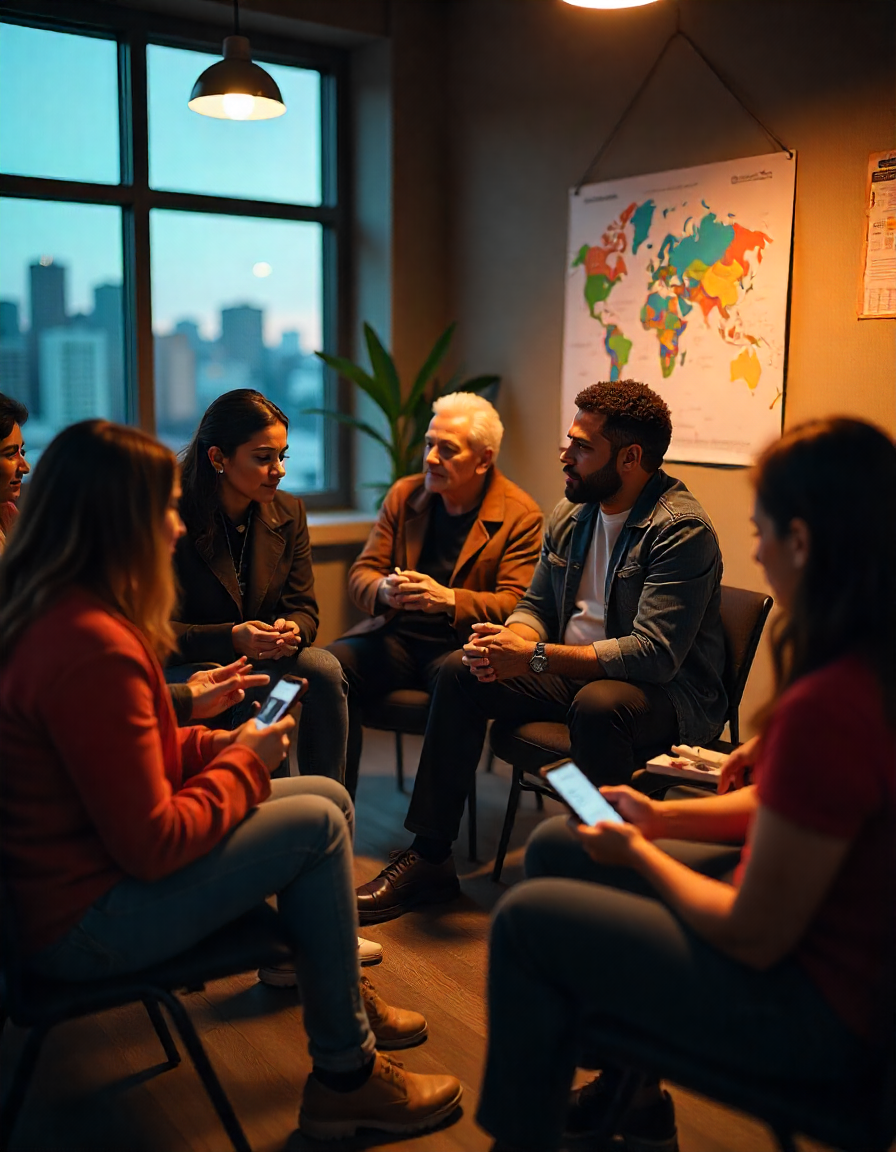Beyond the Spotlight: How Celebrities Are Using Their Platforms for Social Change
In today’s interconnected world, the influence of celebrities extends far beyond the silver screen or concert stage. Many famous personalities are leveraging their platforms to drive meaningful social change, transforming their star power into catalysts for progress. This shift represents a fascinating evolution in celebrity culture—one where fame serves a purpose greater than entertainment.
The New Wave of Celebrity Activism
Gone are the days when celebrity involvement in social issues was limited to token appearances at charity galas. Today’s stars are diving deep into complex social problems, educating themselves, and using their considerable reach to amplify important messages. Take Leonardo DiCaprio, for instance. While initially known primarily for his acting career, DiCaprio has established himself as a formidable environmental advocate. His foundation has donated over $100 million to environmental projects worldwide, and he consistently uses his acceptance speeches and social media presence to highlight climate change issues.
What makes this new wave of activism particularly powerful is its authenticity. Unlike the carefully managed PR moves of the past, many celebrities now speak from personal experience. Lady Gaga’s Born This Way Foundation emerged from her own struggles with mental health and her desire to support young people facing similar challenges. By sharing her vulnerabilities, she has created a safe space for conversations about mental wellness that might otherwise remain stigmatized.
Strategic Impact: More Than Just a Voice
The most effective celebrity activists understand that awareness is only the first step. They’re developing sophisticated strategies to create tangible change. Consider Emma Watson’s HeForShe campaign for UN Women. Rather than simply speaking about gender equality, Watson helped design an initiative that specifically engages men and boys as allies in the fight for women’s rights. The campaign has sparked conversations in communities worldwide and has secured commitments from world leaders and corporations alike.
Similarly, Matt Damon co-founded Water.org after realizing that traditional charity approaches to the global water crisis weren’t creating sustainable solutions. The organization pioneered innovative financing models that help families secure access to safe water and sanitation. By focusing on market-based solutions rather than perpetual aid, Damon and his team have helped millions achieve water security.
The Digital Amplifier
Social media has revolutionized how celebrities engage with social causes. Platforms like Twitter, Instagram, and TikTok allow stars to communicate directly with millions of followers, bypassing traditional media gatekeepers. When NBA star LeBron James speaks out about police brutality or education inequality, his message reaches an audience that might never engage with traditional news sources.
This direct connection creates unprecedented opportunities for mobilization. After the murder of George Floyd, numerous celebrities used their platforms to share information about protests, bail funds, and educational resources. Many, like actor Michael B. Jordan, went beyond social media posts, organizing peaceful protests and using their production companies to create content addressing systemic racism.
Navigating the Criticisms
Celebrity activism isn’t without controversy. Critics argue that famous voices can overshadow grassroots movements and that stars often speak on issues they don’t fully understand. These concerns highlight the importance of what might be called “humble activism”—the approach taken by figures like actor David Oyelowo, who has been deeply involved in advocacy for justice and reconciliation but consistently emphasizes that he is “following the lead of those who have been doing this work for decades.”
The most respected celebrity activists are those who acknowledge their privilege, listen to affected communities, and use their access to open doors for grassroots leaders rather than centering themselves. When singer Rihanna’s Clara Lionel Foundation addresses global education and emergency response programs, she often highlights the local organizations doing the day-to-day work rather than claiming credit herself.
The Ripple Effect
Perhaps the most significant impact of celebrity activism is its ability to normalize conversations about important issues. When Prince Harry speaks openly about his mental health struggles or when Beyoncé addresses racial injustice in her art, they make these topics part of the mainstream discourse.
This normalization has measurable effects. After Olympic gymnast Simone Biles withdrew from competitions to prioritize her mental health, mental health professionals reported increased interest from young athletes seeking support. When K-pop group BTS spoke at the United Nations about self-acceptance, their message reached millions of young people worldwide, contributing to a global conversation about identity and wellbeing.
The Future of Celebrity Influence
As we look to the future, the trend of celebrities using their platforms for social change appears to be accelerating. Younger stars like Billie Eilish and Yara Shahidi have grown up with social awareness as an integral part of their identities and careers. They approach activism not as an add-on to their fame but as a core component of their public personas.
The most promising development is the increasing collaboration between celebrities and grassroots organizations. Rather than working in silos, stars are connecting with community leaders, activists, and experts to create more impactful and sustainable change. This model recognizes that celebrity influence is most powerful when it amplifies existing movements rather than creating new ones.
Conclusion: The Power of the Platform
The evolution of celebrity activism represents a positive shift in our culture. When used thoughtfully and ethically, celebrity platforms can spotlight overlooked issues, mobilize resources, and create space for marginalized voices. The most effective celebrity activists understand that their true power lies not in speaking for others but in creating opportunities for others to speak for themselves.
As audiences, we play a crucial role in this ecosystem. By supporting celebrities who engage thoughtfully with social issues and holding accountable those who don’t, we help shape a culture where fame and social responsibility are increasingly intertwined. In a world facing complex challenges, the thoughtful use of celebrity influence offers one more tool in the collective effort to create a more just and sustainable world.











